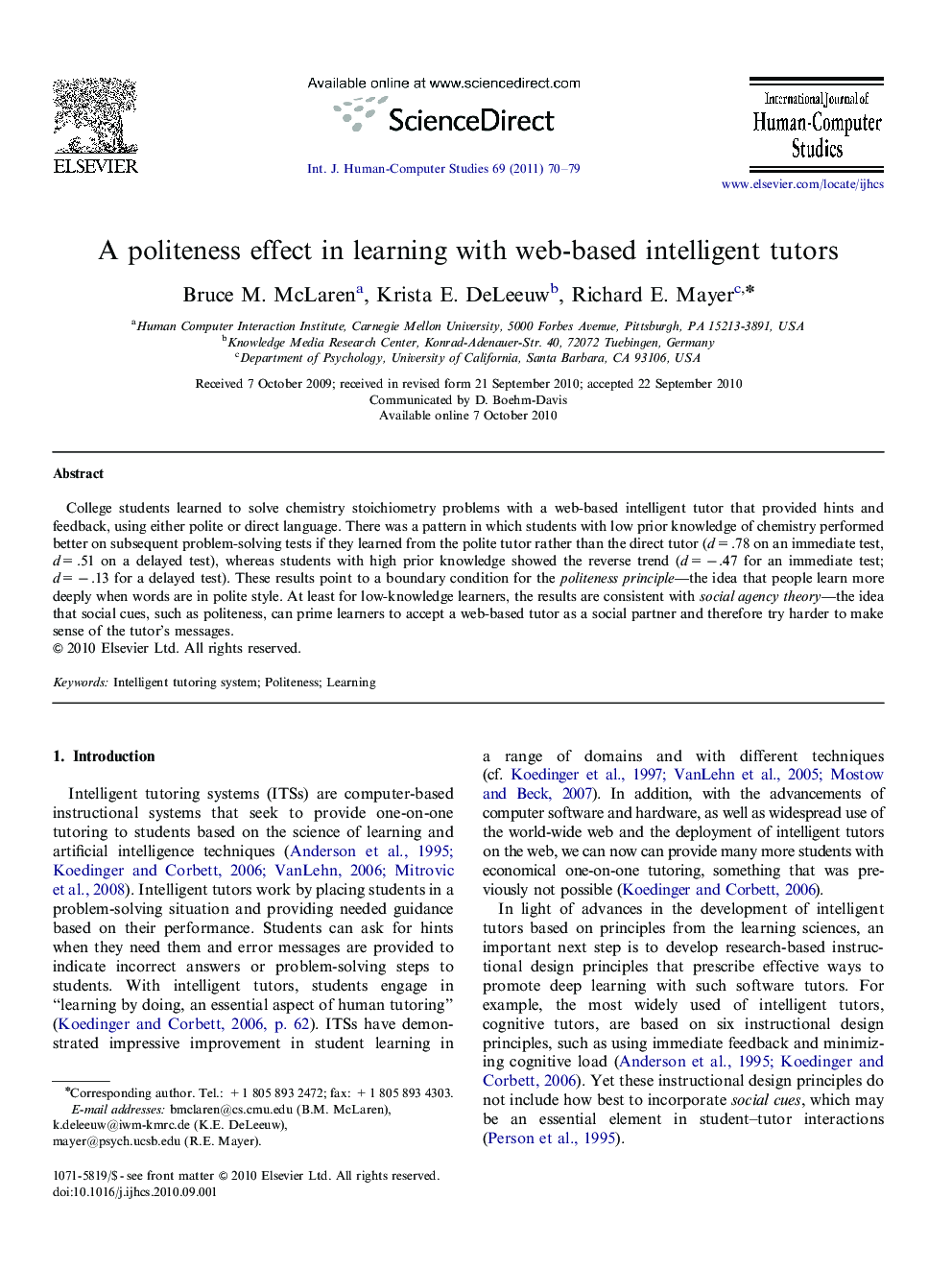| کد مقاله | کد نشریه | سال انتشار | مقاله انگلیسی | نسخه تمام متن |
|---|---|---|---|---|
| 401000 | 1439023 | 2011 | 10 صفحه PDF | دانلود رایگان |

College students learned to solve chemistry stoichiometry problems with a web-based intelligent tutor that provided hints and feedback, using either polite or direct language. There was a pattern in which students with low prior knowledge of chemistry performed better on subsequent problem-solving tests if they learned from the polite tutor rather than the direct tutor (d=.78 on an immediate test, d=.51 on a delayed test), whereas students with high prior knowledge showed the reverse trend (d=−.47 for an immediate test; d=−.13 for a delayed test). These results point to a boundary condition for the politeness principle—the idea that people learn more deeply when words are in polite style. At least for low-knowledge learners, the results are consistent with social agency theory—the idea that social cues, such as politeness, can prime learners to accept a web-based tutor as a social partner and therefore try harder to make sense of the tutor’s messages.
Research Highlights
► Students learned to solve chemistry problems with a web-based tutor.
► Low-knowledge learners learned better from a tutor who used polite wording.
► High-knowledge learners did not learn better from a polite tutor.
► The politeness principle applies to low-knowledge learners but not high-knowledge learners.
Journal: International Journal of Human-Computer Studies - Volume 69, Issues 1–2, January–February 2011, Pages 70–79